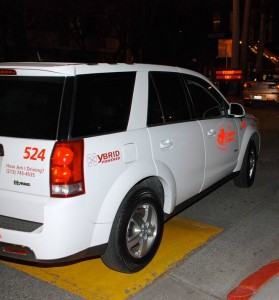Campus Cruiser announces shortened hours
USC Transportation has announced that its hours of operation will be shortened to accommodate more students at peak hours.
In a statement e-mailed to students and faculty Thursday, USC Transportation said that starting Feb. 28, the Campus Cruiser service will begin at 6 p.m. every night and end at 2:45 a.m. Currently, students can call for a ride between 5 p.m. and 2:45 a.m. daily.

Service · Campus Cruiser has changed its hours of operation to accommodate more students during peak hours. Cruiser will now run one hour less than what students are accustomed to. Some students say this change will have no affect on their usage. - Daily Trojan file photo
USC Transportation said the shortened Cruiser hours were made to improve the quality of the service.
“This will enable us to optimize our operation by focusing our resources on our high-demand periods,” the e-mail stated.
USC Transportation could not be reached for comment.
For many students, the hour lost in service is not at a time they would normally call Campus Cruiser. Peak hours for the service are generally later in the night.
According to the statistics from Feb. 8 posted on the USC Transportation website, 57 passengers used Campus Cruiser from 5:00 to 6:00 p.m., compared to 128 passengers at the peak hour of 10:00 p.m. to 10:59 p.m.
“From my experience, the most challenging time to get ahold of Campus Cruiser is after 8 p.m., and I assume that’s the most heavily trafficked time,” said Stephanie Irankunze, a sophomore majoring in business administration. “So moving the time an hour or two doesn’t seem to be a cause for concern.”
Late at night, when more students tend to use Campus Cruiser, it can often become more difficult to find an open car.
Despite the program’s shortened hours and high demand at peak hours, many students still feel Campus Cruiser provides a helpful service.
“It is a safe and convenient way to move around at night and on the many occasions we find ourselves unable, for any reason, to operate vehicles or travel around campus without putting ourselves and others in harm’s way,” Irankunze said. “In this regard it is extremely helpful.”
